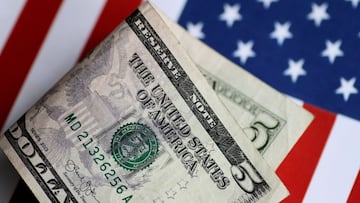Fourth stimulus check: will petitions have an effect on decision-making?
More than 3 million people have collectively signed petitions seeking more direct payments, but the likelihood of a fourth check is low.

The largest of the stimulus check petitions has more than 2.76 million signatures at time of publication, created by restaurant owner Stephanie Bonin. If it reaches 3 million, it will be the largest on change.org. Currently, there are five other ongoing stimulus petitions .
The petition calls on Congress “to make recurring checks automatic if certain triggers are met,” so that people will not have to wait around for the government to act. Those recurring checks would be “$2,000 payments for adults and $1,000 payment for kids."
Why were the petitions posted?
Bolin, lake many other Americans, feels like stimulus checks are the way forward to navigate the US people out of the pandemic. Her statement on the petition, updated in the last week, reads, “moving forward Congress needs to make recurring checks automatic if certain triggers are met. No more waiting around for our government to send the help we need.” The new thrust of the petition is to make future stimulus tests less reflexive and set certain parameters where the government will automatically distribute stimulus checks.
How likely are they to affect another stimulus check?
The Biden administration currently has no plans to resume stimulus checks, choosing to help families through the American Rescue Plan. At the forefront of this has been the Child Tax Credit, where American families are eligible to receive up to $300 a month for each child. The most recent payment was July 15 and the next is due on August 13, slightly earlier than usual.
With the Child Tax Credit, Biden has sought to make stimulus checks more targeted rather than distributing large sums of money to every American. However, this has its flaws as some families who are eligible will no doubt slip through the cracks, as well as those in need who don't have families. Unemployed people without families will be under even more pressure when the extra unemployment benefits end next month.
Do any power brokers support further stimulus checks?
Speaking before the House Ways and means Committee in May, Treasury Secretary Janet Yellen was less convinced about direct cash payments than unemployment insurance. “With respect to stimulus checks, there are different ways and different causes of weakness in the economy,” she said, “sometimes stimulus checks are a really good approach. Sometime less good. I think we need to look into the economics and consequences of that a little more."
However, Progressives in the Democratic Party have been pushing for monthly stimulus checks for Americans but have made little headway.
More stories about a fourth stimulus check:
Some stimulus checks are being distributed by state governments
Despite the lack of federal stimulus checks, some states have taken action to support their citizens.
California
In September, two-thirds of California taxpayers are expected to receive a $600 Golden State stimulus check. The September checks will be the second round of payments to be made and are being called GSS II. GSS II will be sent to taxpayers in the state making less than $75,000 a year. GSS I was sent after those making under $30,000 had filed their taxes. Those in the care of dependents are eligible to receive an additional $500 payment.
New Jersey
The garden state has implemented new tax rules that increased the top tax rate of 10.75% from earners of over $1 million, previously the upper limit only applied to those earning over $5 million. The money is being redistributed and, although not a proper stimulus check exactly, will be welcome in people's bank accounts. It will come in the form of a $500 tax rebate for families making up to $150,000 or those filing individually who earn up to $75,000.






